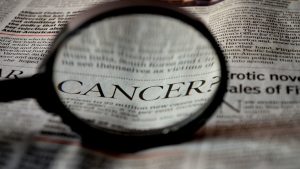South Africa’s progress in developing nuclear medicine and the means to detect and treat cancer has received a R600 million boost with the launch of the South African Isotope Facility in Cape Town. The Facility’s launch comes as the World Health Organisation (WHO) predicts that cancer is likely to become the largest killer on the continent within the next seven years.
iThemba-Labs has been producing radioisotopes for the local and international nuclear medicine markets for over 30 years. Radioisotope therapy is used in the detection and treatment of cancer. They target cancerous cells while causing minimal damage to surrounding cells.
Minister for Higher Education and Training, Science and Innovation, Blade Nzimande says the existing facility has over the years been used for research, product development and training.
“Much as South Africa, we have been involved in the production of radioisotopes as part of nuclear medicine from nuclear technology, this is now the first facility that is completely dedicated now, it’s not involving any other activities other than the production of radioisotopes, it’s the only facility on the African continent and it’s the only facility of its kind in the Southern hemisphere. These isotopes are very important in the treatment of a number of diseases, but in the main the focus in this instance is the production of radioisotopes to escalate the fight against cancer because cancer has now become a pandemic and the WHO has indicated that by 2030, it’s likely to be the single largest killer on the African continent,” Nzimande explains.
Ithemba Labs launches Isotope facility to fight cancer: Blade Nzimande:
Nzimande says following the Covid-19 pandemic, an African Research Agenda is a must. In South Africa, the five most common kinds of cancer in order of incidence, are breast, prostate, cervical, lung and colorectal cancer. Of these, the leading cause of death is lung cancer.
Academics in the field of nuclear medicine say the investment in such a facility is welcome, and will have a direct impact on thousands of patients.
“It increases the access to what is really the leading modality of treating cancer, but also the leading modality of detecting diseases very, very early. It is important in whatever we do that we must have detection, and this isotope facility is really bringing this to South Africans, it’s also giving researchers opportunities to come up with new radioisotopes that will treat many other spectrums of other cancers and of course, it also helps you to monitor what you are treating,” says Orif Mike Sathekge who is the Head of Nuclear Medicine at the University of Pretoria Steve Biko Academic Hospital.
With its newly acquired accelerator, the current facility can now be used solely for research, without impacting production output.
Twenty-one postgraduate students have already been targeted to study at the facility.
South Africa Isotope facility launched:






